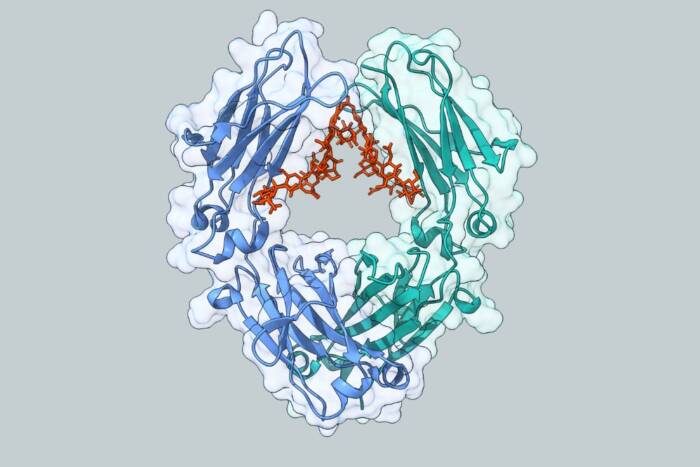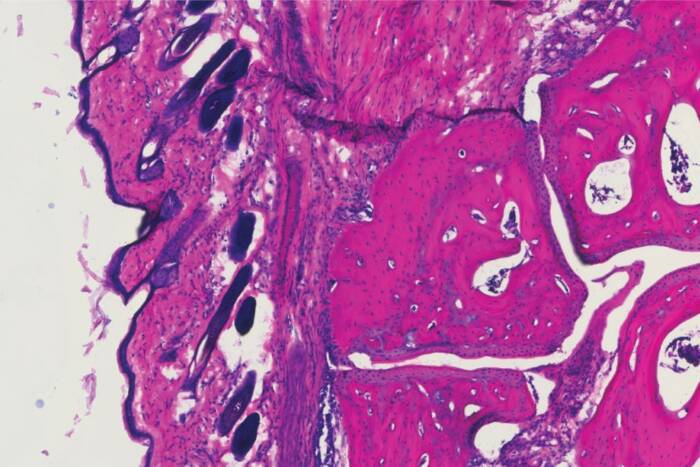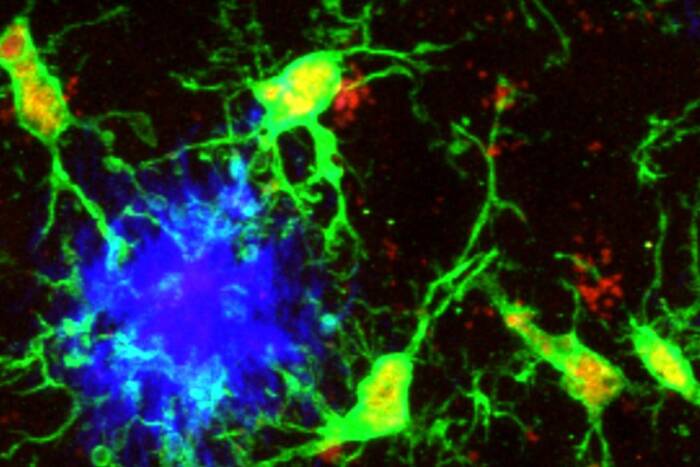Papavasiliou and Stavropoulos receive “transformative” NIH grant
The National Institutes of Health will award Nina Papavasiliou, head of the Laboratory of Lymphocyte Biology(opens in new window) at Rockefeller, a $2.1 million grant under its Transformative Research Projects program, an initiative designed designed to encourage high-risk, high impact research. The grant, which will run for five years, will fund efforts to develop new ways of engineering therapeutic antibodies.
The Transformative Research Projects Awards, along with the NIH Director’s Pioneer and New Innovator Awards, is among three innovative research programs (opens in new window)supported by the NIH Common Fund(opens in new window). The Common Fund, enacted into law by Congress through
Exterior decorator. Papavasiliou and her colleagues propose to “decorate” trypanosome proteins with disease-associated targets (red), then use them to trick the body’s immune system into making therapeutic antibodies.the 2006 NIH Reform Act, supports trans-NIH programs with a particular emphasis on innovation and risk taking.
“The NIH Director’s Award programs reinvigorate the biomedical work force by providing unique opportunities to conduct research that is neither incremental nor conventional,” says James M. Anderson, director of the Division of Program Coordination, Planning and Strategic Initiatives, who guides the Common Fund’s High-Risk Research program. “The awards are intended to catalyze giant leaps forward for any area of biomedical research, allowing investigators to go in entirely new directions.”
Papavasiliou, with Pete Stavropoulos, a former Bristol-Myers Squibb Postdoctoral Fellow in her laboratory, propose to use the host-pathogen interaction between the immune system and the organism that causes African sleeping sickness to produce novel vaccines.
African published last year(opens in new window). This could open the door for novel vaccines to a number of communicable diseases ranging from HIV to flu as well as non-communicable diseases for which antibodies to disease-associated targets have been shown to ameliorate disease burden, such as various cancers, neurodegenerative diseases and drug addiction.
“While using a pathogen like the African trypanosome to cure disease may seem counterintuitive, or even dangerous, we do this all the time with attenuated bacteria and viruses,” says Stavropoulos. “We can attenuate trypanosomes as well, and their dense surface coat, with tens of millions of copies of the same protein, provides a unique and potent array for displaying vaccine epitopes to the immune system.”
“We do not currently understand how to actively vaccinate against disease-associated targets in ways that reproducibly result in effective concentrations of long lasting therapeutic antibodies,” says Papavasiliou. “But, African trypanosomes have evolved to do just that, and we can both learn from them and harness them to our benefit.”
Originally from Greece, Papavasiliou received her undergraduate degree in biology, with a minor in German literature, from Oberlin College in 1992. She completed her Ph.D. in molecular immunology in 1998 at The Rockefeller University. After postdoctoral studies at Yale University, Papavasiliou returned to Rockefeller as assistant professor in 2001, becoming associate professor in 2007. Papavasiliou is a recipient of the Alexandrine and Alexander L. Sinsheimer Fund Scholar Award and is a 2003 Searle Scholar and a 2002 Keck Fellow.


